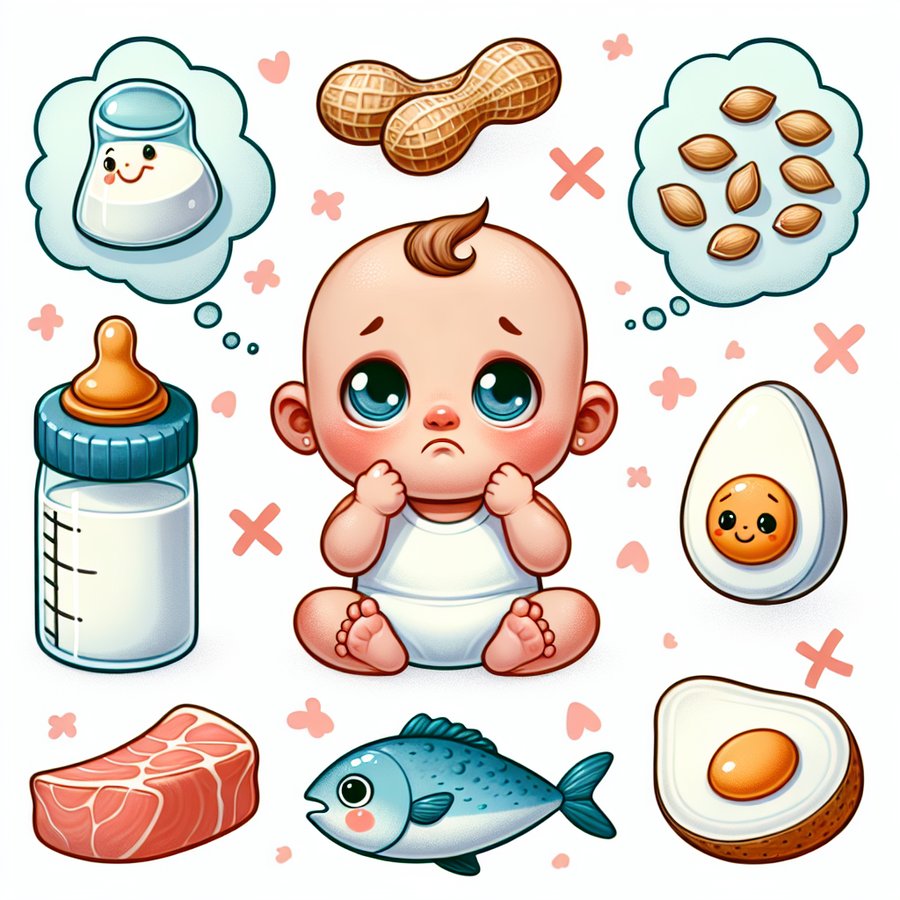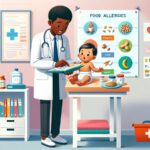Recognizing signs of food allergies in infants is crucial for the early management and treatment of potential allergic reactions. As parents navigate the journey of introducing solid foods to their baby’s diet, understanding these signs can help safeguard their health and ensure timely intervention.
Identifying Food Allergies in Infants
Food allergies occur when the body’s immune system incorrectly identifies certain food proteins as harmful, leading to an allergic reaction. In infants, the most common allergenic foods include milk, eggs, peanuts, tree nuts, soy, wheat, fish, and shellfish. Recognizing signs of food allergies in infants early can make a significant difference in managing symptoms and preventing severe reactions.
Common symptoms of food allergies in infants include hives, eczema, vomiting, diarrhea, coughing, wheezing, and swelling of the face, lips, or other body parts. In more severe cases, anaphylaxis, a life-threatening reaction that requires immediate medical attention, can occur. For detailed information on food allergy symptoms, click here.
Recognizing Signs of Food Allergies in Infants
It’s important for parents to closely monitor their infant for any adverse reactions after introducing new foods. Keeping a food diary can help track what the infant eats and any symptoms that follow. This practice can be invaluable in identifying foods that may cause allergic reactions.
Should you notice any concerning symptoms, such as difficulty breathing, persistent digestive issues, or skin reactions, consult a healthcare provider immediately. Early diagnosis and management are key to handling food allergies effectively. For further insights on managing and diagnosing food allergies, consider visiting the internal link on Recognizing Signs of Food Allergies in Infants.
Managing and Preventing Food Allergies in Infants
Once an allergy is identified, avoiding the allergenic food is crucial. Reading labels for potential allergens becomes a part of daily life. Additionally, breastfeeding mothers may need to adjust their diet if their infant shows signs of a food allergy.
Introducing potentially allergenic foods in small amounts while closely monitoring the infant’s reaction is recommended. This strategy, supported by recent research, may help prevent the development of food allergies. For more on dietary guidelines and introducing allergenic foods, the internal link to First Foods and Allergy Development: What Parents Need to Know provides comprehensive advice.
In conclusion, recognizing signs of food allergies in infants is an essential step in protecting your child’s health. By staying informed, keeping a close eye on reactions to new foods, and consulting with healthcare professionals, parents can manage and potentially prevent the impact of food allergies on their infants. Remember, early intervention and awareness are your best tools in this journey.
For more related information, explore our articles on Safe Introduction of Pets to a Newborn Baby, Preventing Choking Hazards: Safe Foods for Infants and Toddlers, and Choosing the Safest Baby Car Seats for Newborns for more insights on ensuring your infant’s safety and well-being.













